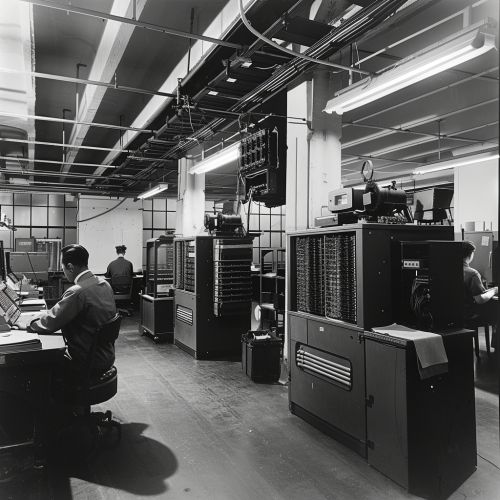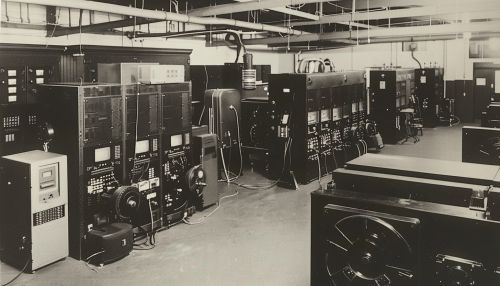Howard Aiken
Early Life and Education
Howard Hathaway Aiken was born on March 8, 1900, in Hoboken, New Jersey. He was the only child of Daniel H. Aiken, a stationary engineer, and Margaret Emily Mierisch, a housewife. Aiken showed an early interest in machinery and was known to tinker with mechanical devices throughout his childhood.
Aiken completed his primary and secondary education in Hoboken. He then enrolled at the University of Wisconsin–Madison, where he received a Bachelor of Arts degree in Electrical Engineering in 1923. He continued his studies at the Harvard University, earning a Doctor of Philosophy (Ph.D.) in Physics in 1939.


Career
After completing his Ph.D., Aiken remained at Harvard as a research fellow and instructor. During this time, he began to conceptualize a large-scale, automatic digital computer. He envisioned a machine that could solve complex mathematical problems at high speed, which he believed would be a valuable tool for scientific research.
In 1937, Aiken proposed his idea to IBM, and the ASCC, also known as the Harvard Mark I, was born. This machine, completed in 1944, was the first large-scale automatic digital computer in the United States.
Aiken went on to develop the Mark II, Mark III, and Mark IV computers. These machines were among the earliest digital computers and were used for a variety of scientific computations, including calculations for the atomic bomb project during World War II.
Aiken also founded the Harvard Computation Laboratory in 1947, which was a major center for computer science research. He served as its director until his retirement in 1961.
Contributions to Computer Science
Aiken's most significant contribution to computer science was the development of the Mark I, the first large-scale automatic digital computer. This machine was a major step forward in the evolution of computing and laid the groundwork for future developments in the field.
Aiken also made significant contributions to computer education. He established one of the first graduate programs in computer science at Harvard and was instrumental in training many of the early leaders in the field.
In addition, Aiken was a strong advocate for the use of computers in scientific research. He believed that computers could greatly enhance the ability of scientists to solve complex problems and was a pioneer in the use of computers for numerical analysis and simulation.
Legacy
Aiken's work has had a profound impact on the field of computer science. His development of the Mark I and subsequent computers helped to establish the foundation for modern computing. His contributions to computer education helped to shape the field and train its future leaders.
Aiken's vision of the potential of computers for scientific research has also had a lasting impact. His advocacy for the use of computers in research helped to pave the way for the widespread use of computers in all areas of science today.
